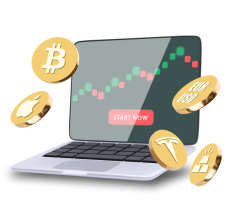The fate of the yellow metal after the Russian sanctions
Global stock markets are increasing on Tuesday, supported mostly by Chinese news. Reports show that China easing its covid-19 restrictions, while data show the price pressure decreasing and the latest published economic data are fine.
At the time of writing the pan-European STOXX 600 index gained 0.8%, Germany's DAX, the CAC 40 in France, and the FTSE in the U.K. also rose respectively by 09%, 1.4%, and 1.1%. This increasing seen after several factors, however, its continuing is not guaranteed, yet.
Last week we had different reports that with higher prices, demand decreases. And we know when we have less demand, sellers will try to give more discounts, which means lower prices again. US FED in its latest announcement in June monetary policy meeting was expecting that. On the other hand, the latest published data also show that slowing economic growth is not that worse, and it has enough resources to recover itself. On top of that, Beijing also announced that the COVID quarantine requirement period for overseas visitors will be halved to seven days.
Elsewhere, G7 (Seven major economies) meeting in Germany entered its third and last day. Focuses mostly were on the Russian-Ukraine conflict, and they had pledged to stand with Ukraine "for as long as it takes". Earlier on Sunday, G7 members announced a ban on imports of Russian gold, which accounts for about 10 percent of global production, and generates tens of billions of dollars in revenue for the Russian government. Newly mined or refined gold will also be sanctioned once the import ban takes effect. Not only that, this sanction will promote the complete decoupling of Russia from the world's two major gold trading centers in London and New York.
As a market reaction, at the beginning of the week, spot gold jumped to $1,839 during the Asian opening season. However, later and with increasing hopes in the stock markets, prices plummeted again. Positive sentiment in the stock market decreased the USVIX index to under 28. The lower market risk with green boards in the stock markets increased the bond Yields as well. US 10-years benchmark yields increased again towards 3.23%, which is not a good signal for gold price.
Considering all signs and market conditions, we can say that investors still are not sure about the future of the markets. Therefore it is still so early to talk about a sell-off in the gold market and moving the liquidity to the stock markets, especially for big players. Therefore, the current uptrend for stock markets and pressures on Gold price can be temporary, and we have to wait a bit more to make sure what economic data have for us. For now, gold will continue its side movement between 1,807 and 1,8057, unless we have an unpredictable event in the markets.


















